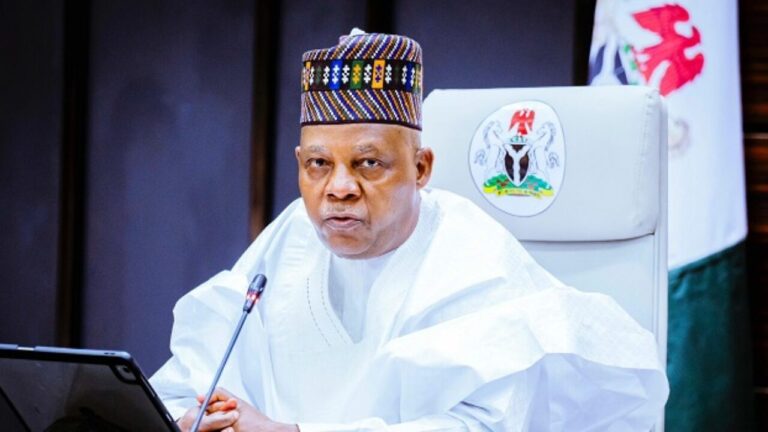The cost of revenue collection by major revenue generating agencies of the Federal Government, such as the Federal Inland Revenue Service (FIRS), the Nigeria Customs Service (NCS) and the Nigerian Upstream Petroleum Regulatory Commission (NUPRC), hit N899.58 billion in the first 11 months of this year, findings by New Telegraph has shown.
The amount is N404.82 billion or 81.82 per cent higher than the N494.76 billion that the agencies got as collection cost in the corresponding period of 2023.
New Telegraph’s analysis of FAAC communiqués and data released by the National Bureau of Statistics (NBS), indicate that revenue collection cost for the agencies stood at N78.30 billion in January 2024; N66.46 billion in February, N69.54 billion in March, N69.53 billion in April, N80.51 billion in May, N76.64 billion in June, N99.756 billion in July, N81.975 billion in August, N80.99 billion in September, N97.52 billion in October and N103.31 billion in November.
Under the extant regulations on cost-of-collection, the FIRS receives four per cent of non oil revenues; the NCS receives seven per cent of customs duties and levies, while the NUPRC gets four per cent of royalties, rents, and other oil and gas sector revenues.
Thus, a statement issued, by the Director, Information and Public Relations at the Federal Ministry of Finance, Mohammed Manga, at the end of the FAAC’s December 2024 meeting, partly read:
“The Federation Account Allocation Committee (FAAC), at its December 2024 meeting chaired by the Honourable Minister of Finance and the Coordinating Minister of the Economy, Wale Edun, shared a total sum of N1.727 trillion to the three tiers of government as Federation Allocation for the month of November, 2024 from a gross total of N3.143 trillion.
“From the stated amount inclusive of Gross Statutory Revenue, Value Added Tax (VAT), Electronic Money Transfer Levy (EMTL), Exchange Difference (ED), the Federal Government received N581.856 billion, the States received N549.792 billion, the Local Government Councils got N402.553 billion, while the Oil Producing States received N193.291 billion as Derivation, (13% of Mineral Revenue).
“The sum of N103.307 billion was given for the cost of collection, while N1.312 trillion was allocated for Transfers Intervention and Refunds.”
Further analysis of data published by the NBS shows that revenue collection cost received by the three agencies has headed north in recent years. Specifically, in 2020, the FIRS received the sum of N111.97 billion as cost of collection; the NCS received N70.67 billion while the NUPRC (then known as the DPR) got N46.19 billion.
In 2021, FIRS’ collection cost stood at N145.89 billion, the NCS received N100.03 billion while the NUPRC received N83.45 billion. Also, data for 2022 shows that the FIRS received N200.16 billion as collection cost, the NCS got N128.64 billion while the NUPRC received N98.01 billion.
However, the upward trend in the cost of revenue collection has led to calls for the Federal Government to establish a more efficient tax collection system as part of its measures to boost revenue generation and end the country’s oil dependency.
Indeed, in a report released in June this year, Agora Policy, an Abuja-based policy thinktank, called for a comprehensive overhaul of Nigeria’s revenue collection system.
The research institute argued that while centralising tax and revenue collection is efficient, the current method of compensating Federal agencies by giving them a percentage of the collected revenue is problematic.
It also contended that the cost-of-collection approach, while useful in the past, has led to various issues such as abuse, distortions, distractions, and wasteful expenditures.
The think-tank pointed out that the FIRS received N43.35 billion as a cost of collection in January, a sum, which it said, exceeded the allocations received by each of Nigeria’s 36 states.
It further noted the three key revenue-generating agencies collectively received N78.30 billion in January 2024, surpassing the gross FAAC allocations to four of the six geopolitical zones in the country.
In addition, Agora Policy stated that the current cost-of-collection arrangement has led to significant disparities and inefficiencies as revenue collection agencies now receive a larger share of funds than many states, a situation which, according to the research institute, not only creates a perverse incentive structure that prioritises revenue collection over other essential functions, but also results in scarce resources being diverted away from critical developmental needs.
Interestingly, in one of the four bills, which President Bola Tinubu sent to the two chambers of the National Assembly in October, as part of his administration’s efforts to overhaul the revenue administration process in the country, the President is seeking the lawmakers’ approval to change the name of the FIRS to the Nigeria Revenue Service (NRS).
Titled, “The Nigeria Revenue Service (Establishment) Bill”, the proposed legislation, according to the President, “seeks to repeal the Federal Inland Revenue Service (Establishment) Act, No. 13, 2007 and establishes the Nigeria Revenue Service, to assess, collect and account for revenue accruable.














